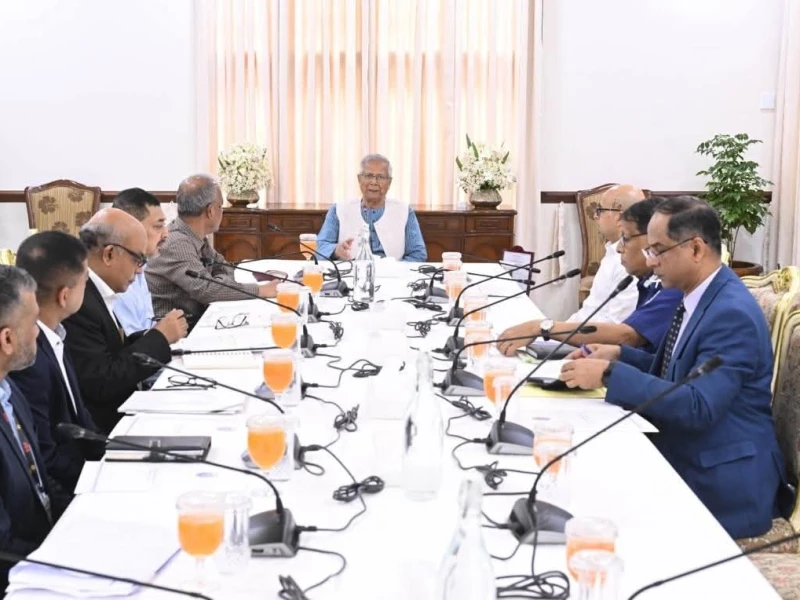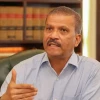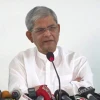Fourteen months after the fall of Sheikh Hasina’s government, Bangladesh’s political landscape remains deeply divided. Despite a series of reforms and dialogues under the interim administration led by Chief Adviser Professor Muhammad Yunus, tensions have now erupted over whether the proposed national referendum on the July National Charter should precede or follow the upcoming national election.
The Yunus-led caretaker government, which took charge after the collapse of Hasina’s 16-month rule, has formed several commissions to recommend institutional reforms. Yet, despite months of consultations with political parties and civil society, the country’s politics continues to boil, with disputes over the referendum now overshadowing earlier achievements.
NCP warns of civil war risk
National Citizens Party (NCP) Chief Coordinator Nasiruddin Patwary on Thursday warned that delaying the national election beyond February could push the country towards civil unrest.
The country is heading towards a critical situation. Announce the election by February. If you fail to do so and a civil war-like situation emerges, the responsibility will fall squarely on your shoulders,” Patwary cautioned while speaking at a discussion titled “The Current and Future Roadmap of Politics” at the Dhaka Reporters Unity.
He urged the interim government to act decisively to prevent instability and demanded the publication of the Reform Commission’s draft recommendations.
The Reform Commission has already submitted its proposals. The ball is now in Dr Yunus’ court. He is regarded as an international player. It is often said that foreign players slip on Bangladesh’s pitch, but here, our legal adviser makes it even more slippery,” Patwary said, adding that the NCP would endorse the proposal only after the draft becomes public.
Criticising what he described as “false debates” raised by the BNP and Jamaat-e-Islami, Patwary said disputes over whether the referendum should be held before or after the election were distractions.
The BNP was born through a ‘Yes’ vote. If it insists on the ‘No’ vote now, its end will also come through the ‘No’ vote,” he warned.
He also accused Jamaat-e-Islami of creating confusion about the proposed upper and lower houses of parliament, saying, “On the question of referendum, Jamaat will eventually unite with the BNP. The two parties are engaging in baseless arguments.”
Law Adviser expresses frustration
Law Adviser Asif Nazrul expressed disappointment over the widening political rift regarding the proposed referendum, describing the lack of consensus after months of dialogue as “deeply frustrating”.
Addressing a briefing at the Foreign Service Academy, he said, “The Consensus Commission has proposed two options — one is to implement the July Charter first and then hold the referendum, with automatic constitutional effect if not done within 270 days. The other is to leave the matter to the elected parliament. Parties remain sharply divided over which option they find more acceptable.”
Nazrul warned that any political attempt to impose unilateral decisions would violate “the spirit of July”.
Whatever anyone says, the election will be held in the first half of February. But ensuring a proper electoral environment is not only the government’s responsibility — the parties share that responsibility too,” he said.
He confirmed that the Chief Adviser would make the final decision on the timing of the referendum after necessary consultations. “Once a decision is made, we will stand firmly by it,” he added.
BNP calls Charter ‘one-sided’
BNP Secretary General Mirza Fakhrul Islam Alamgir, meanwhile, criticised the National Consensus Commission’s recommendations on the July Charter as “one-sided” and “imposed on the nation”.
Speaking at a press conference at the BNP Chairperson’s Gulshan office, Fakhrul said, “The Commission ignored differences or notes of dissent and even included matters that were never discussed. The year-long discussions between political parties and commissions were meaningless — a mockery and a betrayal of the nation.”
He alleged that several clauses were altered without the consent of signatories. “For example, the clause abolishing Article 4(a) on displaying Sheikh Mujibur Rahman’s portrait in offices was left out, and despite consensus to repeal Article 150(2), the final Charter quietly included changes,” he claimed.
Fakhrul said holding a referendum before the election would be “unjustified” and “imprudent”, arguing that logistical challenges and expenses made such a move unrealistic. “It would be wiser to hold the referendum on the same day as the national election,” he suggested.
Reaffirming BNP’s commitment to democracy, he said, “Our goal is to build a strong democratic state based on equality, human dignity, and justice through a fair, neutral, and credible national election.”
The BNP leader also questioned the interim government’s authority to issue a constitutional order implementing the July Charter, arguing that only the President holds such power under Article 152 of the Constitution.
He concluded by reiterating BNP’s trust in the Chief Adviser’s commitment to hold elections in mid-February 2026. “We have no mistrust towards anyone regarding the election. We want it to be held promptly and as planned,” he said.
BNP Standing Committee members Dr Abdul Moyeen Khan, Nazrul Islam Khan, Salahuddin Ahmed, Selima Rahman and Hafizuddin Ahmed were also present at the briefing.
As political parties harden their stances over the referendum, Bangladesh’s fragile unity — once symbolised by the July Charter — now appears to be under strain, raising questions about whether the country can steer clear of yet another political deadlock.


 Prev Post :
Prev Post :
